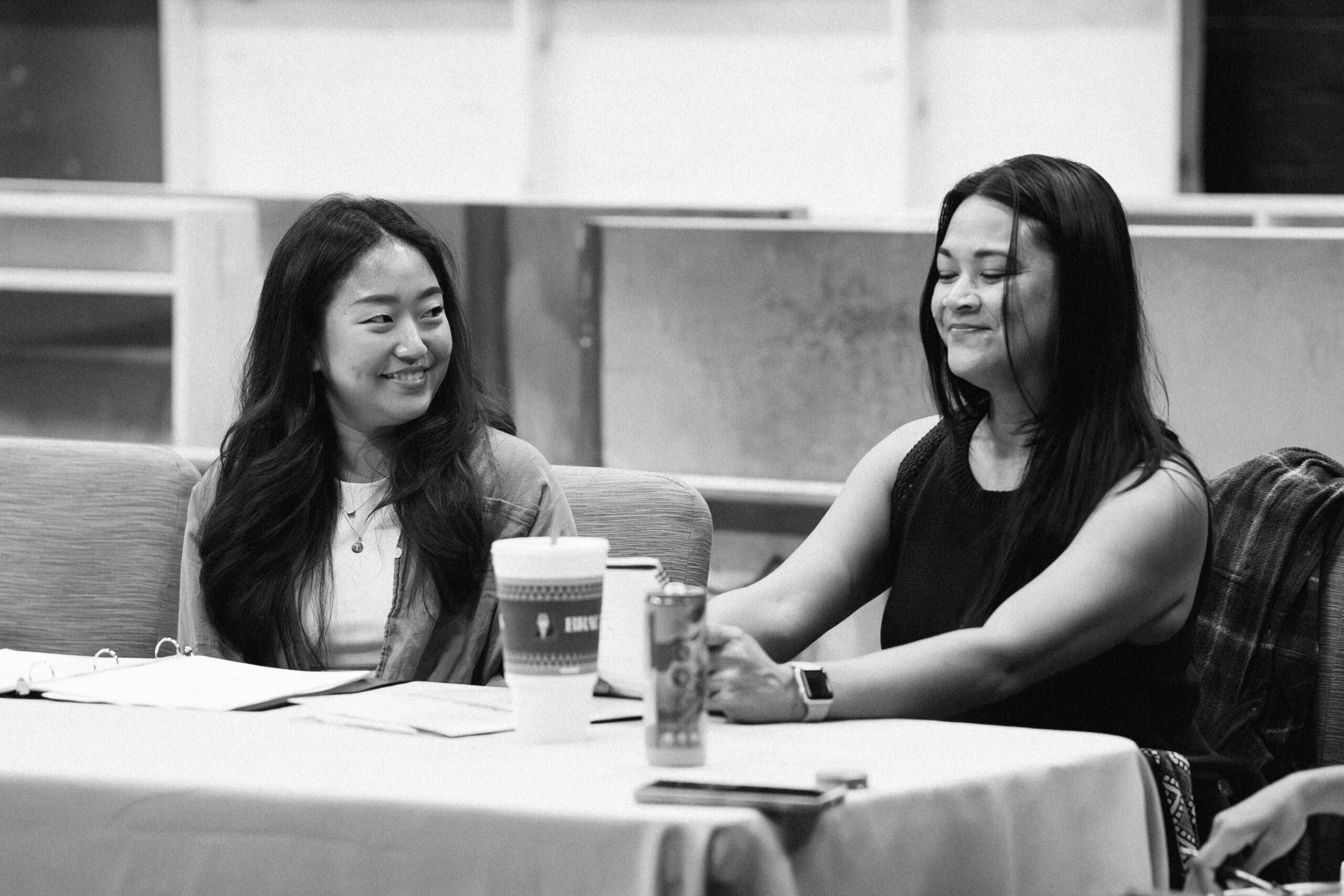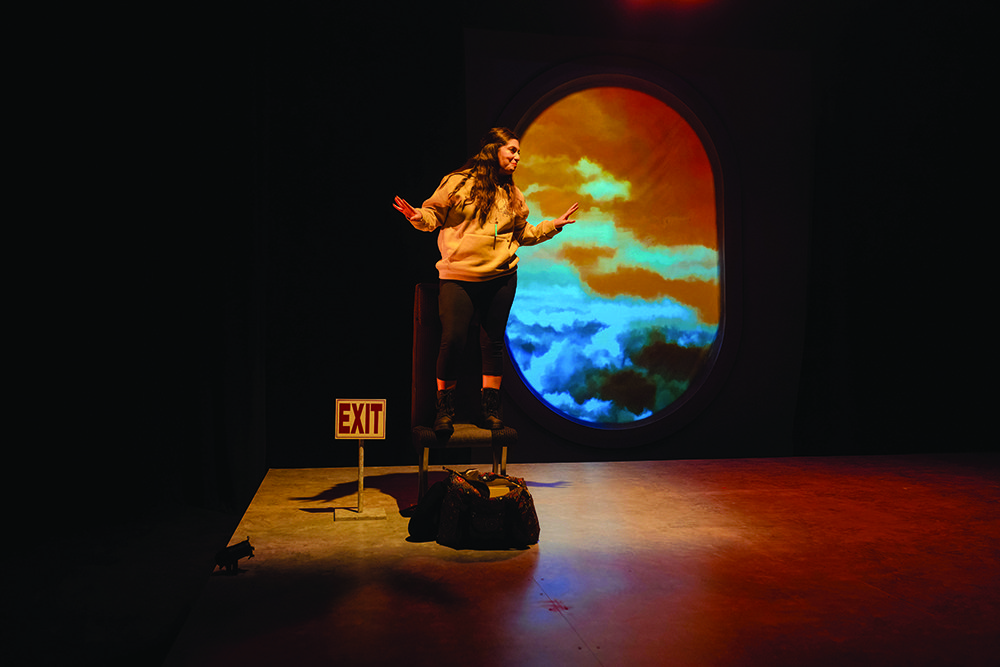Originally posted on fwtx.com
Editor’s Pick: Performing Arts Theater
When Amphibian Stage founder and director Kathleen Culebro tells the story of her theater, it’s a story about her because the two are inextricably bound. She leads with being born and raised in Mexico City, a place where magical realism is big, and personalities are even bigger. Her father was a well-known restaurateur in Mexico, a larger-than-life personality. But in a family of extroverts, Culebro was a quiet observer.
Culebro’s mother took her and her sister to their first theater production in New York City when she was 10 years old, but Culebro did not want to go. It seemed boring. But she was instantly entertained by the acrobatic performers, the costumes, the theatrics, and all of the emotions. It was the magic of the songs and the way they combined humor. The story, the music. She was sitting in the front row, which made it larger than life for her. The show was “Pippin,” and this musical about a prince in search of the deeper meaning in life, passion, and adventure moved her. The character’s plight was familiar to her own as she felt her quiet way of approaching the world was different from her gregarious family. The biggest message for her — to be her own person.
“I was a shy kid in a family of extroverts. They were very social and confident. I could really see myself in Pippin, who didn’t want to live the life his family wanted him to live,” she says. “In Mexico being shy is considered a very big character flaw. I always felt like an outsider and a misfit, just like Pippin did.”
She left Broadway that day forever changed. Her mother took her and her sister back to New York every year after that. She loved theater from that day forward.
Her taste has changed since then. She’s less into musical theater and more into plays that are what she says are a little bit dark and hyper-theatrical and make her think. “I like visually interesting plays,” she says. She loves the way theater offers insight into the human condition and what someone else is going through, how it connects us to our humanity and also helps us understand the misunderstood villain. “What makes us look outside ourselves, because I could be driving down the street and someone cuts me off, and I will be mad,” she says. But she says if she knew their story, her heart would soften.
She adheres to the universal law that if we knew everyone’s stories, then there would be few enemies and little conflict. Because good stories, told well through any medium, but for her, the theatrical medium, offer a window to a villain, or “the other,” and what made them who they are. “A villain doesn’t usually wake up in the morning and say, ‘I am going to do something terrible,’” she says. “[Theater] gets us out of our bubble but in a safe space.” She wants people to be willing to get uncomfortable to learn about the unfamiliar people or cultures they encounter.
Culebro seeks out scripts that will inspire patrons the way theater has always inspired her. Amphibian subscriber Stephen Tobin says he appreciates the meticulous and methodical thought Culebro puts into her productions, which always get him to think. “There is always substance in what she brings to the stage at Amphibian. It’s entertainment, but there is depth to it. Every play she brings and every program she starts has at its core the desire to create a better understanding to entertain and broaden your mind,” Tobin says.
But Culebro didn’t follow her heart into theater until later in life. In her college years, between 18-22 years old, she studied French and Spanish literature thinking she would be a businesswoman. She was good at math and was shy, so theater was not a place for her, she thought. She then married and had a daughter, but her passion for theater never waned. It tugged at her.
When her family moved to Fort Worth in 1993, she started taking theater courses at Texas Christian University a few years later. While she considers herself a playwright, it was there that she found she had many talents for theater production. She even started designing sets and costumes. She realized that being quiet (or shy) is no reason to walk away from her passion. “They took me right in,” she says.
She and her classmates wanted to produce a show in 2000, and TCU offered its space and resources. Now in her 30s, she would soon get another bachelor’s degree in theater and radio, television, and film. In this incubator of a space, she co-founded Amphibian Stage Productions in 2000. “It felt so magical. Part of that, the chair of the department at the time, he just handed us the keys. If they hadn’t had that, we probably wouldn’t be here today. He let us use that space for eight years,” she says.
While looking for their permanent home, she never stopped producing. She collaborated with The Modern Art Museum of Fort Worth, bringing minimally produced readings to showcase playwriting and the talent. She found a temporary home for four years at the then Fort Worth Community Arts Center (now Arts Fort Worth) and landed in their current space in the SoMa district in 2012 when it was still a rough area in the nascent stages of redevelopment. She says it was risky but worth it. They were finally able to expand their season year-round and fully bring Culebro’s talent into full display.
Culebro seeks out scripts that will inspire patrons the way theater has always inspired her. Amphibian subscriber Stephen Tobin says he appreciates the meticulous and methodical thought Culebro puts into her productions, which always get him to think. “There is always substance in what she brings to the stage at Amphibian. It’s entertainment, but there is depth to it. Every play she brings and every program she starts has at its core the desire to create a better understanding to entertain and broaden your mind,” Tobin says.
The audience member also has to be vulnerable themselves and be open to feel what the characters are going through, he says. He appreciates how Culebro’s productions at Amphibian make this vulnerability possible in part because of the subject matter, directors chosen, the actors chosen, and in part because the theater format is black box, which allows patrons to experience these stories in the best way possible because the configuration can change each time.
“As an arts and entertainment genre, it asks more of us than television and movies. We have to let our imaginations be along for the ride. But in exchange, we get to see the players at close range — real people who are willing to be vulnerable in front of strangers for the sake of storytelling. And there is nothing like a live performance in an intimate setting,” Tobin says.
Amphibian has also brought countless beneficial programs to Fort Worth. But Culebro is most proud of the opportunities her theater provides artists, particularly emerging artists. “Many of our world premieres have gone on to be produced a lot around the country. I love that they were developed here [because] there are so few opportunities for playwrights,” she says. Most importantly, she hopes that the stories they’ve told through theater over the years have had an impact on audiences, she says.
In Mexico, frogs are good luck. The horned frog is also the mascot for the institution she owes her start to — TCU. Hence, amphibian for an appropriate moniker. “They are adaptable. They can live in land and water. They are beginning stories,” she says.
Culebro says the arts heal a community. “We exist for our community. We are trying to fulfill a purpose,” she says.



